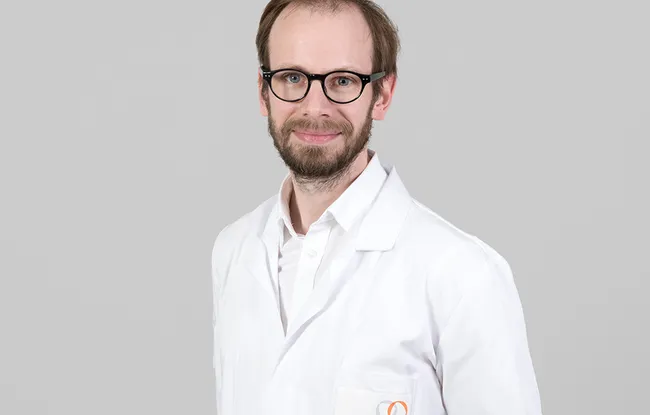- Home >
- Institut Curie News >
- Dr. Olivier Delattre, winner of the Inserm 2022 Grand Prix
The Inserm Grand Prix pays tribute to a leading name in French scientific research whose work has led to remarkable progress in our knowledge of human physiology, treatment and health research more generally.
According to the Inserm press release (see opposite), “it is this desire to always go further to serve the health of young patients and their families, by continuing to work tirelessly to better understand and treat their diseases, which has earned Olivier Delattre the Inserm Grand Prize.”
Olivier Delattre perfectly embodies the Curie spirit and model: improving understanding to improve treatment. A pediatrician by training, he embarked on research to dissect the mechanisms responsible for pediatric cancer, and his discoveries have been instrumental in shaping improvements in diagnosing and caring for children with cancer
Said Prof. Alain Puisieux, Director of Institut Curie’s Research Center.
Olivier Delattre is a pediatrician, and decided to pursue basic research at Institut Curie, while never forgetting those children with cancer for a moment. I applaud his exemplary career and impactful discoveries, all of which are a credit to the Curie model
Added Prof. Steven Le Gouill, Director of the Institut Curie Hospital Group.
Dedicated to pediatric oncology across the board, Dr. Olivier Delattre is both Director of the SIREDO center and the Cancer, Heterogeneity, Instability and Plasticity Unit (Inserm U830).
Thirty years ago, Olivier Delattre was involved in a world first when his research team, working out of Institut Curie’s Research Center, identified and then characterized the genetic damage responsible for Ewing sarcoma, a form of bone cancer that occurs in children and teenagers. This breakthrough opened up new avenues of research in diagnosis, prognosis, and targeted treatment.
Other works went on to spark major unprecedented advances in understanding rhabdoid tumors, rare and very aggressive forms of cancer that primarily affect young children, and neuroblastoma, one of the most common tumors found in children. These works’ findings have often served as a starting point for better understanding the specific processes inherent to how these tumors develop, honing new diagnosis and prognosis tools, and offering new treatment options.
Backed by Institut Curie’s strategic MC21 project, in 2018 Dr. Olivier Delattre founded the SIREDO center, bringing both research and care teams together in a single space at Institut Curie. Thanks to their strong ties rooted in the Curie model, these teams are dedicated to accelerating discoveries and findings to benefit patients under the age of 25 with solid tumors.



